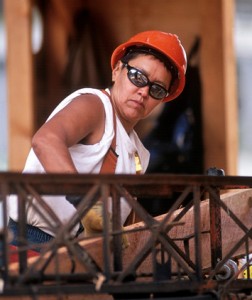We recently signed a Memorandum of Understanding with the Canadian Council for Aboriginal Business (CCAB) to grow that relationship, encourage SFI Program Participants to seek certification under their Progressive Aboriginal Relations (PAR) program and support a dual-logo process. This dual logo indicates that a company sources sustainably managed forest products, but also signals that they are good business partners, great places to work and are committed to prosperity in Aboriginal communities.

Photo credit: naturallywood.com (R)
We also remain active on the ground, engaged with aboriginal communities. Last week, I attended The 37th National Indian Timber Symposium in Keshena, Wisc. The symposium is an opportunity for open and constructive conversations from the perspective of indigenous peoples on issues and concerns of current forestry management practices including fire management, invasive species and economic values.
Canadian First Nations and American Indian Tribes have long-term views of forest management experience and perspective, and with that they see the great value in their SFI certification. Attending the Symposium and other Intertribal Timber Council events is a great opportunity for us to meet with people who certified their land and wood products to the Standard and better understand they what they need in forest management.
More than 4.5 million acres/1.85 million hectares of lands owned by or managed for indigenous communities are certified to the SFI Standard—more than any other certification standard in North America. With our forestry certification standard and the aboriginal community’s rich history with and commitment to forests, we see a terrific opportunity to further both of our goals—promoting and protecting our valuable forests.
Andrew DeVries
VP, Conservation, Indigenous and Government Relations
